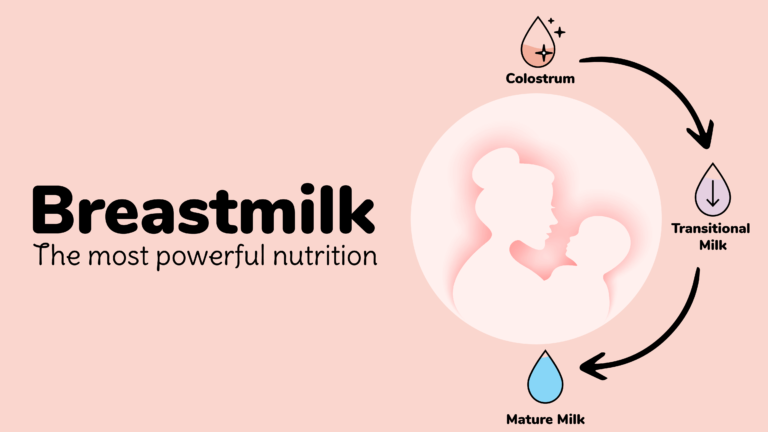Better Sleep for Mom & Baby: Nighttime Breastfeeding Tips

As a breastfeeding mom, you want the best sleep for you and your baby. Nighttime breastfeeding can be tough, but there are ways to make it better. Dr. Harvey Karp suggests tips like rethinking daytime feeds and trying a dream feed.
By using these tips, you can help both you and your baby sleep better. This leads to a happier family. So, start using these nighttime breastfeeding tips to improve your sleep and your baby’s.
Understanding how breastfeeding affects sleep is key. Mothers can improve their sleep and their baby’s by following some tips. These include setting a bedtime routine and creating a sleep-friendly environment.
Using breastfeeding tips can also help your baby sleep longer. With the right approach, you can enjoy better sleep and help your baby develop good sleep habits.
Key Takeaways
- Establish a consistent bedtime routine to signal to your baby that it’s time for sleep
- Use nighttime breastfeeding tips, such as dream feeds, to promote longer sleep stretches
- Create a sleep-conducive environment, including a dark, quiet room and a firm, flat mattress
- Avoid overbundling and ensure your baby’s room is at a comfortable temperature
- Consider using a pacifier to reduce the risk of SIDS, but wait a few weeks before introducing it to breastfeeding infants
- Room-sharing with your baby for at least six months can help lower the risk of SIDS
Understanding Nighttime Breastfeeding Patterns
As a breastfeeding mom, knowing the patterns of nighttime feedings is key. Nighttime breastfeeding is vital for both mom and baby. The American Academy of Pediatrics suggests human milk for the first six months, unless health issues prevent it.
Newborns need feedings every 2 to 3 hours, which means 8 to 12 times a day. This helps them grow and develop. It also helps set a good baby sleep routine. As they get older, they might need to eat less often, but nighttime breastfeeding stays important.
It’s important to understand the baby’s sleep cycles and how they affect the mom’s sleep. Knowing these patterns helps moms prepare for nighttime feedings. This improves their sleep, which is good for both mom and baby’s health.
Creating the Perfect Nursing Environment
Dr. Harvey Karp says a cozy nursing spot can help with breastfeeding challenges like sore nipples and low milk. Medela suggests keeping the crib in the bedroom to help you fall asleep faster between feedings. This is key for breastfeeding support. Having everything you need close by can make nursing better and keep you from waking up too often.
A tidy nursing area is vital for a good breastfeeding journey. Important things to think about include:
- Keeping the crib in the bedroom to reduce sleep disruptions
- Having all necessary nursing supplies within reach
- Creating a comfortable and cozy atmosphere for nursing
By focusing on breastfeeding support and making a caring space, moms can tackle common breastfeeding challenges. Dr. Karp believes a comfy spot for nursing can help moms overcome these issues. This way, they can have a healthier and happier breastfeeding time.
Creating the ideal nursing area is key for breastfeeding moms. It helps them face common breastfeeding challenges and enjoy a healthy, happy breastfeeding journey. By putting breastfeeding support first and making a caring space, moms can have a better nursing experience. They can also strengthen their bond with their baby.
Essential Nighttime Breastfeeding: Tips for Better Sleep for Mom & Baby
As a breastfeeding mom, it’s key to focus on your sleep quality and your baby’s. Dr. Harvey Karp suggests trying a dream feed to boost your sleep. Medela advises using a nursing pillow and keeping baby close to improve sleep efficiency.
Some breastfeeding tips can help you sleep better. For instance, a nursing pillow makes nighttime feedings more comfortable. Also, having the baby’s crib nearby cuts down on wake-up time after feedings.
- Establishing a consistent bedtime routine
- Using relaxation techniques, such as deep breathing or meditation
- Preparing nursing essentials within arm’s reach to reduce the time spent awake during nighttime feedings
By following thesebreastfeeding tips, you can enhance yoursleep quality and your baby’s. This leads to a more peaceful and enjoyable breastfeeding journey.
Setting Up Your Bedside Nursing Station
Creating a bedside nursing station is key for breastfeeding moms. It offers a cozy spot for feeding and caring for the baby. Medela says having baby supplies nearby can boost sleep quality. The American Academy of Pediatrics backs room sharing to lower SIDS risk, making a bedside station vital for safe sleep practices.
Your nursing station should have diapers, wipes, and extra clothes for the baby. Don’t forget breastfeeding support items like nursing pads and a breast pump. A white noise machine or soft nightlight can help the baby sleep better.

- Diapers and baby wipes
- Nursing pads and nipple cream
- Breast pump and storage bags
- Comfortable nursing pillow
- Soft nightlight or white noise machine
Setting up a bedside nursing station and following safe sleep practices can lower SIDS risk. It also improves sleep quality for breastfeeding moms. With the right breastfeeding support and a cozy nursing area, moms can better care for their baby and enjoy nursing.
Safe Co-Sleeping and Bedsharing Guidelines
For breastfeeding mothers, safe sleep practices are key to lower SIDS risk and better mom sleep. The American Academy of Pediatrics suggests room sharing to cut down SIDS risk. Breastfeeding benefits are clear, with studies showing bedsharing moms sleep better than those who don’t.
Here are some safe co-sleeping and bedsharing tips:
- Avoid smoking and smoke exposure
- Don’t overdress babies
- Keep the sleep area cool and safe
By sticking to these guidelines, breastfeeding moms can lower SIDS risk and get better mom sleep. Remember, breastfeeding benefits are many, helping to strengthen the bond between mom and baby.
Managing Sleep Deprivation While Nursing
Being a breastfeeding mom means you face sleep loss head-on. Dr. Harvey Karp says this can hurt your ability to breastfeed. So, getting breastfeeding support and taking care of yourself is key.
Medela suggests resting well and looking after your body and mind. This can help avoid sleep problems.
Try sleeping when your baby does to fight sleep loss. This can help you sleep better. Having breastfeeding support from loved ones also helps a lot.
- Sleeping when baby sleeps to reduce sleep disruptions
- Getting breastfeeding support from partners and family members
- Using energy conservation methods, such as taking naps and prioritizing self-care
By using these tips, breastfeeding moms can sleep better. They can also handle the tough parts of breastfeeding.
Establishing Healthy Sleep Associations
Creating good sleep habits is key for breastfeeding moms. It helps both mom and baby sleep better. The American Academy of Pediatrics says breastfeeding lowers SIDS risk. By knowing about sleep habits and safe sleep, moms can sleep better.
Starting a bedtime routine is important. It can be a warm bath or a lullaby. Positive sleep associations come from gentle rocking, soft music, and a dark room. Having a partner help with bedtime routines can also ease stress for moms.
Here are some tips for better sleep habits:
- Stick to a regular sleep schedule and bedtime routine.
- Use positive sleep associations like gentle rocking and soft music.
- Help the baby learn to soothe themselves.
- Make sure the baby sleeps in a safe place, like a flat cot with a firm mattress.
By using these tips and focusing on safe sleep, breastfeeding moms can help their babies sleep well. This improves sleep for everyone in the family.
Conclusion: Embracing Your Nighttime Nursing Journey
As you start your nighttime nursing journey, stay positive and ask for help. Dr. Harvey Karp says it’s key for breastfeeding moms to accept the process. Medela suggests keeping things calm and using effective methods to solve breastfeeding problems.
Newborns often wake up every 2-3 hours for food in the first few months. It’s important to create good sleep habits and deal with tiredness. Try sleeping when your baby does, get your partner involved, and save energy for better sleep.
Keep in mind, nighttime feedings are a short phase. Most babies sleep through the night by 3-6 months. Cherish this time, knowing your milk is full of nutrients and antibodies for your baby’s health. With the right attitude, you can enjoy these special moments.






